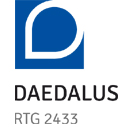
Basics and Contact
Research interests:
- Statistical Physics, Machine Learning, Molecular Dynamics
International experience:
- Studied in India and the US prior to moving to Berlin
Awards:
- Roland Ragatz TA Award (University of Wisconsin-Madison)
- Institute Silver Medal (IIT Bombay)
Publications:
- Kelkar, Atharva S., Bradley C. Dallin, and Reid C. Van Lehn. “Predicting hydrophobicity by learning spatiotemporal features of interfacial water structure: combining molecular dynamics simulations with convolutional neural networks.” The Journal of Physical Chemistry B41 (2020): 9103-9114.
- Kelkar, Atharva S., Bradley C. Dallin, and Reid C. Van Lehn. “Identifying nonadditive contributions to the hydrophobicity of chemically heterogeneous surfaces via dual-loop active learning.” The Journal of chemical physics2 (2022): 024701.
Teaching experience:
- Momentum and Heat Transfer Operations – UW-Madison (Fall 2020, Spring 2020)
- Chemical Processes – IIT Bombay (Spring 2016)
- Mass Transfer Operations II – IIT Bombay (Fall 2015)
Corporations/affiliations (e.g. previous projects, partnerships with industry):
- Business Analyst – Kearney (2016-2018)
What (e.g. experiences) shaped you as a researcher?
My colleagues and friends have played a big role in shaping me as a researcher. I have been very fortunate to work with some incredibly diligent and knowledgeable people who upheld the scientific method throughout my career (both in and outside of research) who have helped me become a better researcher and person.
What motivated you to do research in this field or specific project?
I was lucky to have the opportunity to work with Prof. Reid van Lehn at UW-Madison just at the time when the field of machine learning and molecular dynamics was “taking off”. We worked on the fascinating problem of how water structure around interfaces influences the hydrophobicity of surfaces. I enjoy the mix of theory and real-world applications of both statistical physics and machine learning, and decided to keep working in the field with Prof. Noe on using machine learning applied to learning of coarse-grained forcefields.
What do you think is important in your field or research in general?
The field at the intersection of machine learning and molecular dynamics has been evolving at a rapid pace. I think it is important in this field to “democratize” tools, so that the benefits of having theoretical advances can reach practitioners who can use them to build better drugs, materials, etc. At the same time, I believe that it’s important to develop more robust tools which give reproducible and reliable results.
What helps you in your research?
Working in a large research group with very collaborative and helpful peers.
What shapes you besides research? Do you have hobbies or volunteer work, which you want to share?
I love to read and spend a large part of my time outside work on reading books on a diverse set of topics. I also enjoy teaching and am tutoring a course on Statistical Physics in the ongoing semester. I have previously been involved with several volunteer organizations as a tutor. Other than that, I love football, bikes, cooking, and hiking.
